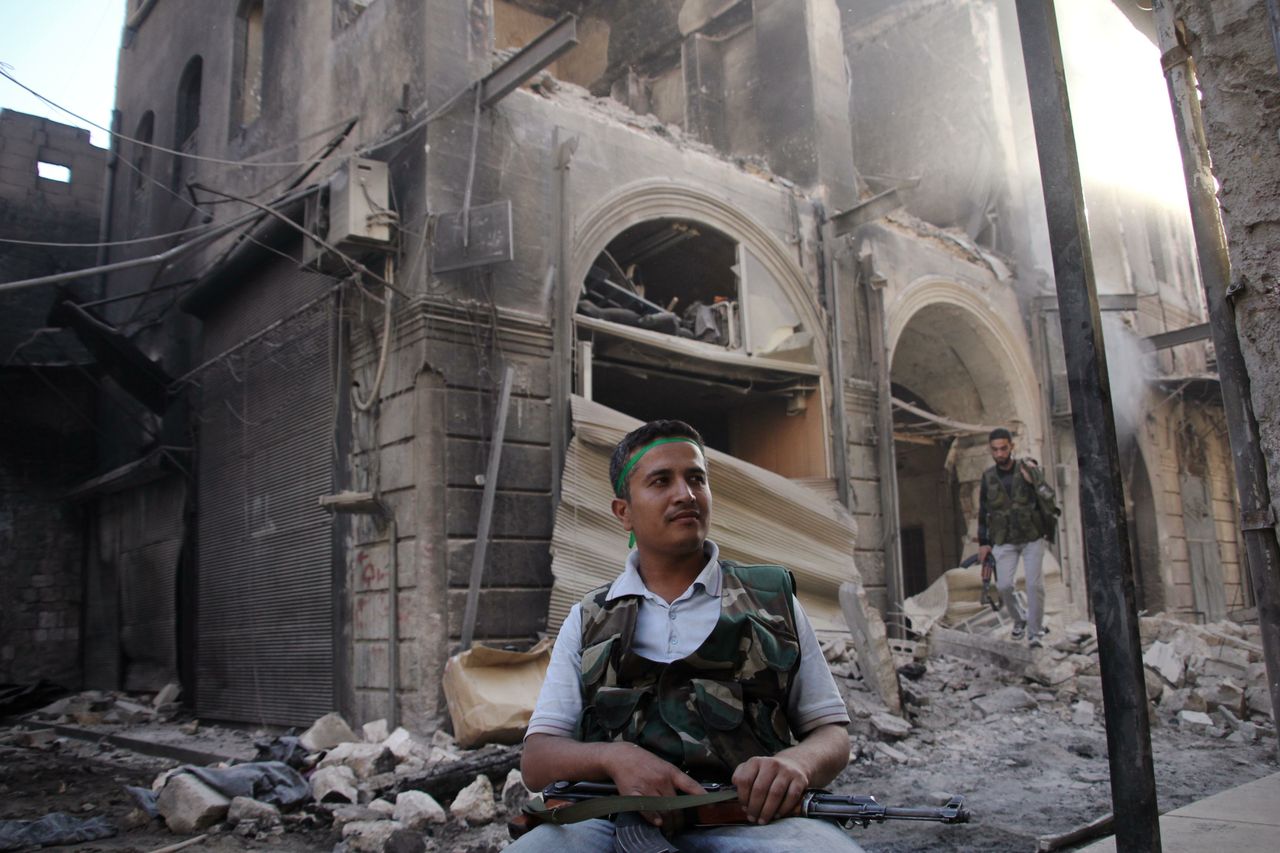
DOHA/CAIRO — Syria's newly named opposition leader, a soft-spoken cleric backed by Washington and the Gulf Arab states, launched his quest on Monday for international recognition as a government-in-waiting to topple President Bashar al-Assad.
In a sign of the danger that the civil war could spread across Syria's borders, Israeli forces said they fired "direct hits" on Syrian artillery in response to a mortar strike into the Israeli-occupied Golan Heights.
Western and Arab enemies of Assad hope the creation of a new Syrian National Coalition for Opposition and Revolutionary Forces can finally unify a fractious and ineffective opposition.
Mouaz Alkhatib, a former imam of a Damascus mosque, flew to Cairo to seek the Arab League's blessing for the new assembly, the day after he was unanimously elected to lead it. He made a concerted effort to address the sectarian and ethnic acrimony underlying 20 months of civil war that has killed 38,000 people.
"We demand freedom for every Sunni, Alawi, Ismaili, Christian, Druze, Assyrian … and rights for all parts of the harmonious Syrian people," he said, calling on Syrian soldiers to desert and all sects to unite.
His assembly was recognized by the six Sunni Muslim-ruled kingdoms of the Gulf Cooperation Council as "the legitimate representative of the Syrian people." Washington said it would back it "as it charts a course toward the end of Assad's bloody rule and the start of the peaceful, just, democratic future."
The Arab League welcomed the formation of the new body, called on other opposition groups to join it and described it as "a legitimate representative and a primary negotiator," but fell short of calling it the new authority in Syria.
Shooting across the line that divides Syria from the Israeli-occupied Golan was just the latest spillover of violence that has alarmed neighbors, including Turkey and Lebanon.
Israeli military sources said Israel hit Syrian army mobile artillery on Monday, the second straight day it fired back in retaliation for what it said were stray mortars hitting Golan.
"We will not allow our borders to be breached or our citizens to be fired at," Prime Minister Benjamin Netanyahu said. Israel seized the Golan Heights from Syria in 1967. Although the two countries have not fought over the territory since 1973, they are still officially at war.
UN Secretary General Ban Ki-Moon called on Israel and Syria to halt firing.
In the north, where fighting has sent thousands of Syrian refugees fleeing into Turkey, a Reuters correspondent saw Syrian jets and helicopters bomb Ras al-Ain, a border town taken by rebels last week. Bombs landed just meters from the frontier, sending up plumes of black smoke.
Opposition groups said 12-16 people died in the air strikes. Turkey said it did not appear that the planes had entered its air space. It is discussing with NATO allies deploying Patriot air defense missiles on the border.
Wrangling
Rebels and opposition politicians formed Alkhatib's new opposition coalition after days of wrangling in Qatar under intense US and Qatari pressure.
Backers hope the new body will give rebels inside Syria more clout and reassure religious and ethnic minorities, after a Syrian National Council made up mainly of exiled Islamists proved ineffective as the main opposition voice.
Western and Arab opponents of Assad want the coalition to attract support from minority sects which had been alienated from the opposition by the prominence of well-organized Sunnis from the Muslim Brotherhood. They also hope to rein in Islamist fighters, some of whom they believe are linked to Al-Qaeda.
"Alkhatib is a dynamic, progressive Islamist, popular in Damascus and the rest of Syria," said Mazen Adi, a prominent Syrian human rights defender who worked with Alkhatib before the revolt. "He is not a trigger-happy jihadi, and he can play a role in containing the extremist groups."
Alkhatib met Arab League chief Nabil al-Araby before Monday's gathering of Arab foreign ministers in Cairo. European foreign ministers are due to join them on Tuesday.
A league official said before the meeting that the league would fall shy of calling the new group the sole legitimate representative of the Syrian people because some Arab states were still reluctant to delegitimize Assad.
"There are still Arab states like Iraq and Lebanon that are not fully supportive of the Syrian revolt," the official said, on condition he not be identified.
Alkhatib, in his early 50s, was jailed several times for criticizing Assad before fleeing into exile this year. He has long promoted a liberal Islam tolerant of Syria's Christian, Alawi and other minorities, activists say.
Hassan Hassan, a Syrian commentator based in the United Arab Emirates, said Alkhatib, as an independent cleric, would be a counterweight to growing influence of the Muslim Brotherhood.
"He's been active for a long time, campaigning against the idea of retribution and extremism. He talks about liberty and freedom for the masses. So he is perceived as a credible figure," Hassan said.
Russia, which with China has foiled UN action on Syria and views Assad's opponents as pawns of the West, urged the new body to negotiate and to reject outside meddling.
Asked if China recognized the new coalition, Foreign Ministry spokesman Hong Lei called on all parties to initiate "a political transition process guided by the Syrian people."
It remains to be seen whether the coalition can succeed where the exiled SNC failed in overcoming mutual suspicion and infighting that weakened the opposition.
"This is a significant step forward, because they finally seem to be forging a more broadly-based platform that includes the SNC but without the SNC taking the lion's share," said Salman Shaikh, director of the Doha Brookings Center think tank.




